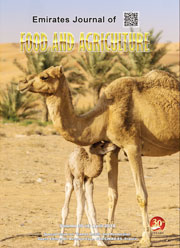Effect of soy isoflavones on bone health among female university students: a pilot study
DOI:
https://doi.org/10.9755/ejfa.2023.3131Abstract
Low bone mineral density (BMD) has become more common in young women. In postmenopausal women, soy isoflavones have been demonstrated to have a powerful influence on bone health when taken as a food supplement. It is unclear how soy isoflavones affect premenopausal women, though. This study looked at how soy isoflavones affected female university students’ BMD. Thirty female students, aged 18 to 25, were introduced to a Quasi-experimental design, where only 28 could complete the study. Participants received soy isoflavone at 60 mg/day for 28 days. BMD was assessed using dual-energy x-ray absorptiometry (DEXA) before and after supplementation. In addition, twenty-four hours food recall and food frequency questioners (FFQ) were used to evaluate the dietary intake of participants. The prevalence of osteoporosis among participants was 18% osteoporosis, 61% osteopenia and 21% normal. After 4 weeks of intervention, a slight improvement in the BMD was recorded. This improvement was noticed in 33, 59, and 40% of normal,osteopenia, and osteoporosis participants, respectively. Soy isoflavone supplementation can be useful in decreasing the risk of osteopenia among premenopausal women. These promising results ensure the viability of conducting full-scale clinical trials to thoroughly look at the relationship between soy isoflavones and bone health among pre-menopausal women.
Keywords: Osteoporosis; Bone mineral density; Soy isoflavone; Saudi Arabia
Downloads
Published
How to Cite
Issue
Section

This work is licensed under a Creative Commons Attribution-NonCommercial 4.0 International License.










 .
. 